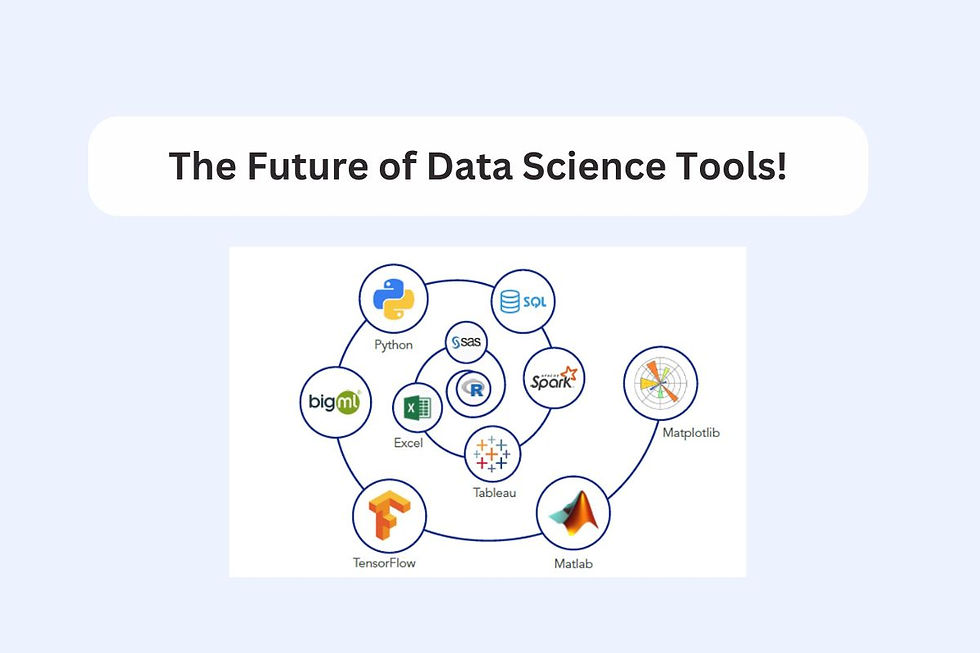5 Key Benefits of Data Analytics in Decision Making
- archi jain

- Mar 13, 2024
- 4 min read
Introduction
In today's rapidly evolving business landscape, data has emerged as the cornerstone of strategic decision-making. As organizations strive to stay ahead of the curve, harnessing the power of data analytics has become imperative. From identifying market trends to predicting consumer behavior, data analytics offers invaluable insights that empower businesses to make informed choices. In this comprehensive guide, we delve into the five key benefits of integrating data analytics into decision-making processes, exploring how this transformative technology can revolutionize your approach to strategic planning.
Harnessing Data for Strategic Advantage
Unlocking Actionable Insights
In the realm of decision making, knowledge is power. By employing the capabilities of data analytics, organizations gain access to a treasure trove of practicable perceptivity. Through advanced algorithms and prophetic modeling, businesses can prize meaningful patterns and trends from vast datasets, enabling them to anticipate request shifts, identify arising opportunities, and alleviate implicit pitfalls. From optimizing marketing campaigns to streamlining functional processes, data- driven perceptivity paves the way for smarter, more effective decision timber.
Enhancing Operational Efficiency
Efficiency lies at the heart of every successful enterprise. Data analytics empowers organizations to streamline their operations and optimize resource allocation. By assaying crucial performance metrics and functional workflows, businesses can identify bottlenecks, inefficiencies, and areas for enhancement. Whether it's optimizing force chain logistics or enhancing pool productivity, data- driven decision timber enables associations to operate more efficiently, driving down costs and maximizing profitability.
Driving Innovation and Growth
Fostering a Culture of Innovation
Innovation is the lifeblood of progress. Data analytics provides organizations with the tools and insights demanded to foster a culture of innovation. By using data to identify arising trends and consumer preferences, businesses can stay ahead of the competition and drive nonstop improvement. Whether it's developing new products, refining services, or exploring untapped requests, data- driven innovation is essential for sustaining long- term growth and relevance in today's dynamic business landscape.
Optimizing Resource Allocation
Effective resource allocation is pivotal for fueling sustainable growth. Data analytics enables organizations to optimize their investments and allocate resources strategically. By assaying once performance data and market trends, businesses can identify high- impact openings and allocate resources consequently. Whether it's allocating marketing budgets, R&D investments, or capital expenditures, data- driven decision making ensures that resources are stationed efficiently, maximizing ROI and driving sustainable growth.
Ensuring Competitive Advantage
Anticipating Market Trends
In the moment's fast- paced business environment, staying ahead of request trends is essential for maintaining a competitive edge. Data analytics equips associations with the tools and insights demanded to anticipate request shifts and subsidize on arising openings. By assaying consumer behavior, request dynamics, and competitor strategies, businesses can proactively acclimatize their strategies and stay ahead of the wind. Whether it's launching new products, entering new markets, or refining pricing strategies, data- driven decision timber enables associations to maintain a competitive advantage in moment's dynamic business.
Empowering Agile Decision Making
Agility is the hallmark of a successful enterprise. Data analytics empowers associations to make nimble, data- driven opinions in real- time. By using real- time data and prophetic analytics, businesses can respond fleetly to changing request conditions, client preferences, and competitive threats. Whether it's conforming marketing campaigns, reallocating resources, or refining product offerings, data- driven decision timber enables organizations to acclimatize snappily and stay ahead of the wind.
Conclusion
The benefits of data analytics in decision making are undeniable. From unlocking actionable insights to driving innovation and gaining competitive advantage, data analytics has the power to transform organizations and drive sustainable growth. By harnessing the capabilities of data analytics, businesses can make informed decisions, optimize their operations, and stay ahead of the curve in today's rapidly evolving business landscape. Moreover, investing in quality data analytics training is crucial for organizations looking to maximize the potential of their data. For instance, a Data Analytics Training Institute in Gurgaon , Nashik , Delhi and all locations in India can provide professionals with the skills and knowledge needed to leverage data effectively, enhancing their decision-making capabilities and driving business success.
FAQs
How can data analytics improve decision making?
Data analytics enables organizations to extract valuable insights from vast datasets, empowering them to make informed decisions based on real-time data and predictive analytics.
What role does data analytics play in driving innovation?
Data analytics fosters a culture of innovation by providing organizations with the tools and insights needed to identify emerging trends, consumer preferences, and market opportunities.
How does data analytics help businesses stay competitive?
By analyzing market trends, consumer behavior, and competitor strategies, data analytics enables businesses to anticipate market shifts, capitalize on opportunities, and maintain a competitive edge.
What are some key benefits of leveraging data analytics in decision making?
Some key benefits include unlocking actionable insights, enhancing operational efficiency, driving innovation and growth, and ensuring competitive advantage.
Can data analytics help businesses optimize their resource allocation?
Yes, data analytics enables businesses to optimize resource allocation by analyzing past performance data, market trends, and investment opportunities.
How does data analytics empower agile decision making?
Data analytics provides organizations with real-time insights and predictive analytics, enabling them to make agile, data-driven decisions in response to changing market conditions and customer preferences.










Comments